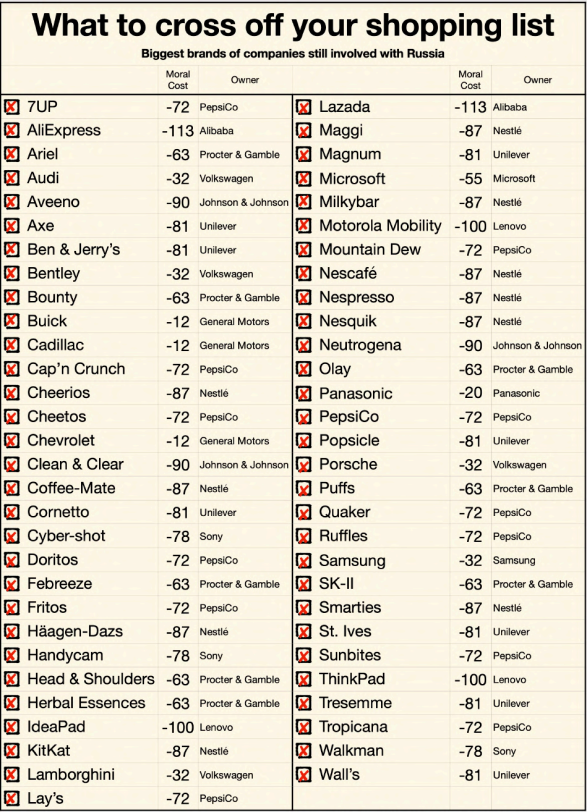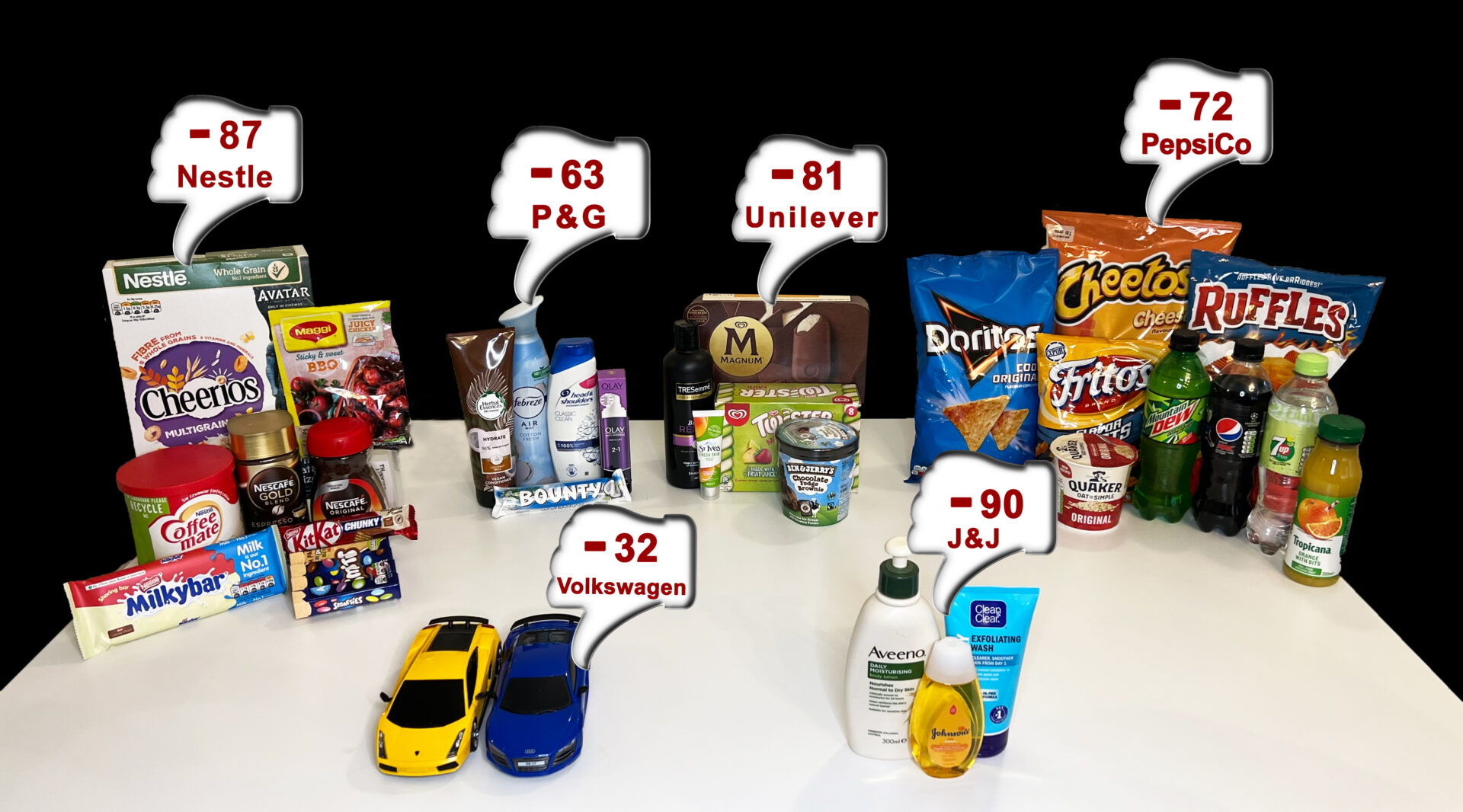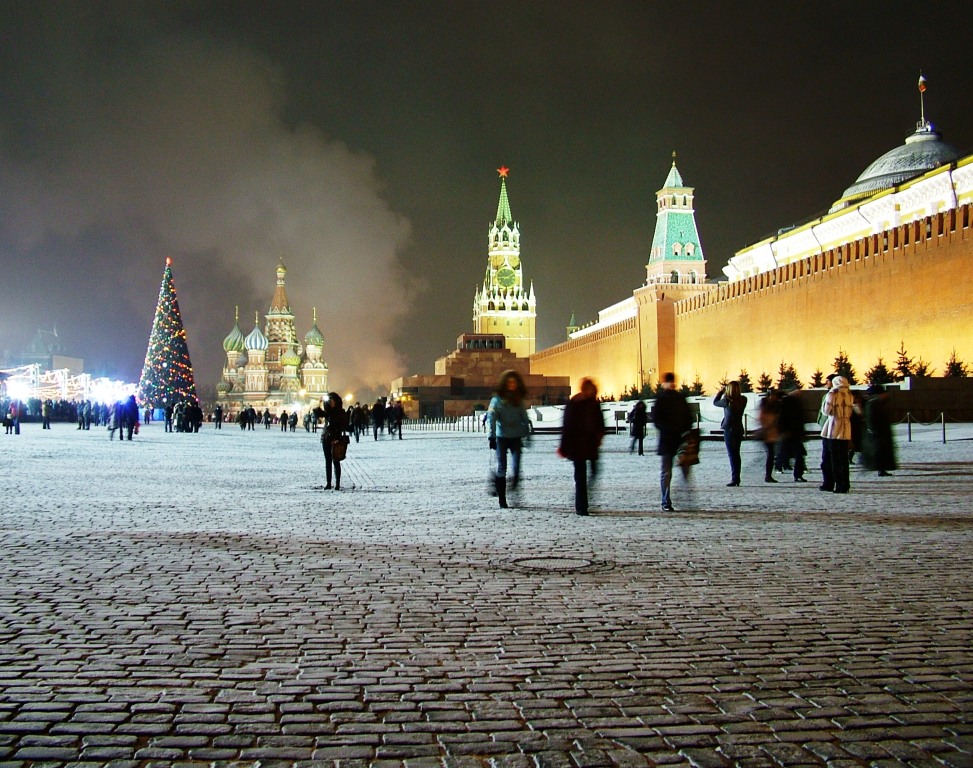Despite the promises to completely quit the Russian market following the invasion of Ukraine, some companies have quietly maintained their presence in the country, paying taxes to the Russian state – which ultimately go to the coffers of the Russian army. Others have partly withdrawn from the market, but silently keep the door open for an eventual return.
In Europe, citizens may be shocked to learn that purchasing certain products, many of which are commonly found in the average Christmas shopping baskets, may tacitly support Russia's invasion of Ukraine.
The UK-based Moral Rating Agency (MRA) has compiled a list of products and companies to boycott this winter to stop supporting Russian aggression.
Indirect support for the war in Ukraine
“Don’t eat Christmas products that pay for the invasion of Ukraine at Christmas. An immoral brand doesn’t taste very good if you close your eyes and think about its owner’s association with the war in Ukraine,” warned Mark Dixon, founder of the MRA.

Credit: Moral Rating Agency
In total, the MRA has detailed 59 of the largest worst offending brands that it encourages customers to boycott this winter from over 1,000 “immoral brands.” The not-for-profit ranks brands with its “moral cost” index, ranking companies on their degree and speed of exit from Russia, their statements after the war, their impact on the Russian economy, and sacrifices made by the company.
Worst offenders
The top five worst offending companies on the MRA’s ranking includes Chinese retail conglomerate Alibaba, pharmaceutical company Johnson & Johnson, food and drink multinational Nestlé, Chinese electronics company Lenovo, and British consumer goods multinational Unilever.
Among these top five worst companies, there are commonly purchased consumer items such as Neutrogena shampoos, Cheerios, Häagen-Dazs, KitKat, ThinkPad computers, Nesquik, Ben & Jerry’s, Wall’s ice cream, Nespresso coffee, and other commonly purchased products.
Alibaba is deemed as the worst offending company for its engagement with the Russian market.
“We think Alibaba is trapped. If it fails to floor China’s Putin appeasement policy, it runs the risk of retribution… It loses profits in the West if it becomes a pariah, and loses profits in the East if it doesn’t side with China,” Dixon said. By comparison, online retailer Amazon has entirely quit the Russian market.
After China and Lenovo, six of the best-known Western consumer products groups are accused by the MRA of remaining within the Russian market, but making excuses about their presence. All these companies, it says, are continuing with “essential” products in Russia and selling non-essential products through loopholes.
“Nestlé is still in Russia today, using the pseudo-moral arguments that food is a human right. To that, the MRA replies that life is a more basic human right, and helping Putin to afford to kill innocent Ukrainian civilians and soldiers is what Nestlé is unwittingly doing every day it sells products in Russia,” the group believes. The group levels similar accusations against Unilever.

Credit: Moral Rating Agency
The MRA says that Japanese company Sony had merely mothballed its operations in Russia. Reuters has discovered Pepsi continues to produce and sell products in Russia as of August this year.
Sponsoring terror
As of 18 December, the United Nations High Commissioner for Human Rights (OHCHR) verified a total of 6,826 civilian deaths since the start of Russia’s invasion of Ukraine in February. Ukrainian authorities suspect that this figure is even higher.
“Lives of innocent Ukrainians rank higher than satisfying the taste buds of Russians that lead to tax revenues that are destroying lives in Ukraine. The essential product argument is simply moral-washing that disguises immoral profits and culpability for misery,” Dixon decried.
Related News
- 'Aid to Ukraine is investment in global security': Zelenskyy rallies US Congress for support
- A quarter of internally-displaced Ukrainians without heating
Multinational companies who remain in the Russia market, under Russian law, have no choice but to assist Russia in its war against Ukraine, helping to mobilise soldiers and contributing equipment, building, and assembly points as required by the government.
Foreign companies who have refused to leave the Russian market employ around 700,00 people in Russia and control around $141 billion in assets in the country.
“Christmas should not be a time for blind consumerism but a time to think about those less fortunate and especially avoid consumption that exacerbates misery. There is Christmas in the West, but there is still a war in Ukraine. Don’t indirectly be part of it,” Dixon concluded.
The MRA maintains an online database of multinational companies and their reactions to the war on Ukraine on its official website.

